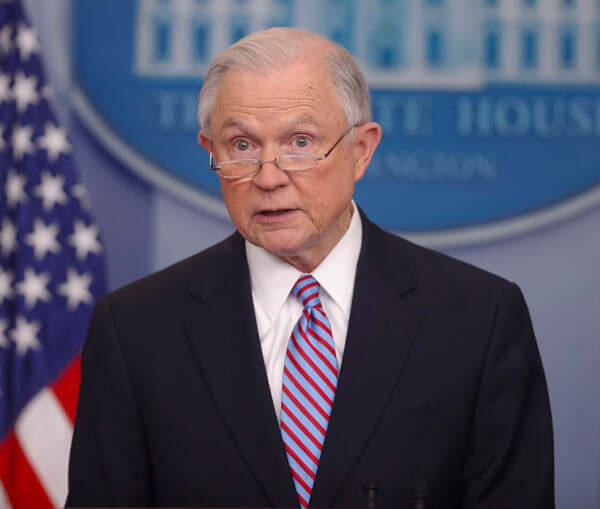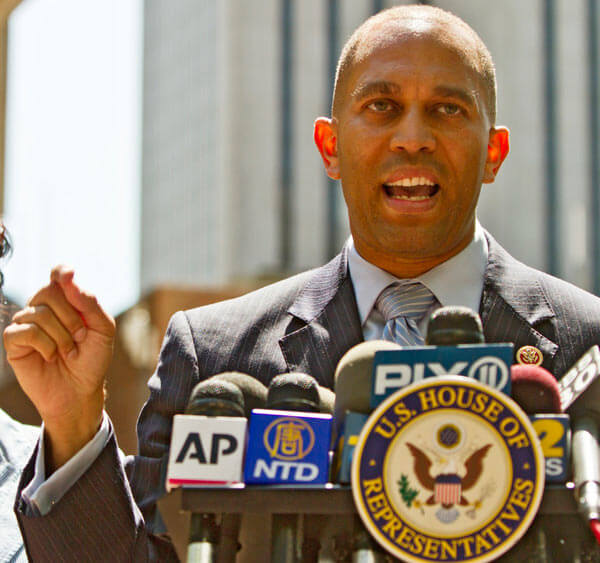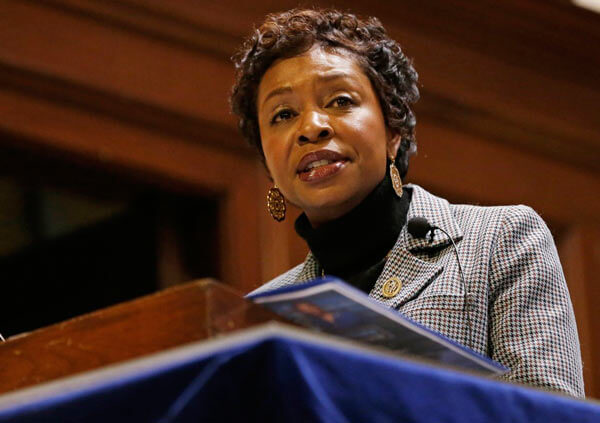ROME, Jan 25, 2017 (IPS) – George W. Bush, the Republican bridge between Ronald Reagan and Donald Trump as U.S. president, declared that the United States was the only democracy in the world. The election of Trump now makes this traditional American rhetoric impossible. Trump received three million votes less than his opponent Hilary Clinton.
The American electoral system was born with independence from Britain, more than 200 years ago. These two centuries of union have formed a people united by myths, consumption and patriotism, but the constitution is untouchable, and based on the idea of protecting small states. The result is a democratic aberration.
Each state is entitled to two senators — both Wyoming with 635,000 inhabitants and California with 39 million. The nine most populous states of the Union are home to just over 50 percent of the total population. The 25 least populated states house less than one-sixth. California has more inhabitants than 21 of the least populated states. But in the Senate, just 26 of the Union’s 50 states with slightly over 15 people of the American people have the majority vote.
The same happens with the election of the President. The vote of the citizens elects representatives not calibrated according to voters but to states, which elect the President. Trump was basically elected with the votes of the inhabitants of rural areas and declining industrial areas, representing the country’s numerical minority.
According to all constitutionalists, a democracy is based on the balance among the legislative, executive and judicial branches. This balance has ceased to exist since the time of Ronald Reagan. In a country where only 50 percent of people vote, political polarisation has led to a structural conflict between the legislative and the executive branches of the system.
The Supreme Court, which is supposed to defend the rights of citizens, has become a political arm of the President who appoints the judges. With a Republican majority, it sanctioned the victory of George W. Bush — not Al Gore — in the presidential elections of 2000, bypassing the popular will. And in 2010 it decided that companies have the same rights as citizens and can therefore finance election campaigns, just like citizens.
As a result, the Koch brothers, lords of fossil fuel, can vote individually as citizens but contribute 900 million dollars to conservative Republican candidates. A presidential election costs at least two billion dollars. And a senatorial election 40 million. These are figures that marginalise the ordinary citizen. Do we not then have an oligarchy rather than a democracy?
Basically, democracy ceases to be real if citizens no longer believe in the political system. And this is not just the American way, but also that of Europe.
Since the fall of the Berlin Wall in 1989, with the end of ideologies, politics has lost vision and long-range strategy, to become a basically administrative fact, with a substantive increase in corruption. Citizens, and especially young people, do not feel part of the system. From being participatory mechanisms, political parties have become self-referential.
And to political disaffection, we should add the discovery that the neo-liberal economic model of the free market has in no way led to the growth announced for all, but has instead increased to an unprecedented extent the gap between the rich (increasingly fewer) and the poor (increasingly more numerous).
Today, just eight men own the same wealth as the 3.6 billion people who make up the poorest half of humanity, according to an Oxfam report. Since the crisis of 2008, at least four trillion dollars have been invested in the global financial system. In Italy, the state is investing 20 billion euros in the rescue of the Monte dei Paschi di Siena bank, a sum that would solve the problems of the country’s education and health sectors. Banks meanwhile have paid 220 billion in fines for illegal activities. Not a single banker has been sent to prison, neither in Europe nor in the United States. And salaries can easily exceed a million dollars …
This disastrous ethical, political and social framework is compounded by mass immigration which, it should be recalled, is the result in large part of US and European military interventions in Iraq, Libya, Syria and Yemen.
That’s why, as Pope Francis eloquently says, people are looking for a saviour.
The crisis of 2008, born in the United States from the fiasco of junk mortgages, and then transferred to Europe through speculation on state securities, gave rise to saviours in almost all European countries, a process which was crowned with Brexit. Now they’re on the attack.
Heartened by the victory of Trump, a meeting was held in Koblenz, Germany, on Jan. 21 of right-wing xenophobic and populist candidates at the next Dutch, French and German elections, who have formed the Europe of Nations and Freedom Group in the European Parliament. Present for Italy was Matteo Salvini who is calling for Italian elections in June, and who declares that the three founding countries of Europe — France, Italy and Germany — will soon shatter the chains of the European Union and refound the Europe of Nations.
It is interesting to note that all look to Vladimir Putin as a point of reference, the call for a conservative and traditional church, the defence of family values against recognition of the rights of homosexuals, and the call for national values. And the impact on politics is important.
In Italy, Trump’s predecessor Silvio Berlusconi says we must no longer speak of parties, which have become unpopular, but of movements. And Beppe Grillo of Italy’s 5-Star Movement, who today would win the Italian elections, has declared that Trump and Putin are a heritage for humanity.
As background to this Western context, we have a China, a Japan and an India ruled by nationalists. And a Philippines with a president elected on the promise to kill 60,000 people, victims of drugs. And a Latin America undergoing a profound political crisis, evident in a different way from Brazil to Venezuela, from Colombia to Bolivia, from Ecuador to Central America. And an Africa, with a population that will increase from a population of one billion to two billion in just three decades, which continues to have frequent democratic crises and inadequate responses to the economic and social needs of the continent.
But the real news is that the Anglophonic world has decided to abdicate its historic role in favour of democracy and multilateralism. It should be recognised that we have so far lived in a very Anglophonic world. Until the First World War, the world lived under Pax Britannica, which had colonised 25 percent of the planet. And after that, we had almost a century of Pax Americana. The creation of the United Nations and international institutions, the concepts of gender equality, action against climate change, as well as neo-liberal globalisation, all came mainly from the Anglophonic world.
In just a few months, the Brexit vote has taken Britain back in time, and the United States under Trump is moving from a global policy to one with a purely national dimension. All this is taking place in a multi-polar world, where China can now find unforeseen opportunities, like the other emerging countries so far framed in a world order governed by the United States and its European allies.
But now, suddenly, the United States is actively engaged in destabilising traditional allies. It should be noted that Trump’s strategist Stephen Bannon has said that part of his task at the White House is to strengthen European xenophobic parties and movements, and he cites Nigel Farage, the architect of Brexit, as the European model to work with. Trump’s statements against the European Union, NATO, the United Nations and international agreements are known.
The Trump Revolution will not be easy, and will hopefully create a mobilisation in defence of the values through which we have had 70 years of international cooperation. The development of greed — and replacement of the person as the centre of society by the market — has certainly emptied the world order of its idealistic content.
But what will this new world order be, based on nationalism, fear and greed? What is certain is that a style of governing that belies the data of reality foments tension and hatred as political tools, fights against culture, intellectuals, the press, women, minorities, homosexuals and neighbours, and will have a profoundly negative impact on politics and society, ethics and democracy, in the world.
So, the real question is: will Trump have one term, or two? If his electorate, which is basically localist, and thus ignorant of the world, does not understand that it has been used by Trump and so re-elects him, we will certainly enter an era of tension and fear, clashes and conflicts, in which it will not be pleasant to live. And we will see what happens in Europe and the rest of the world without international cooperation, which leads to peace and development.


























